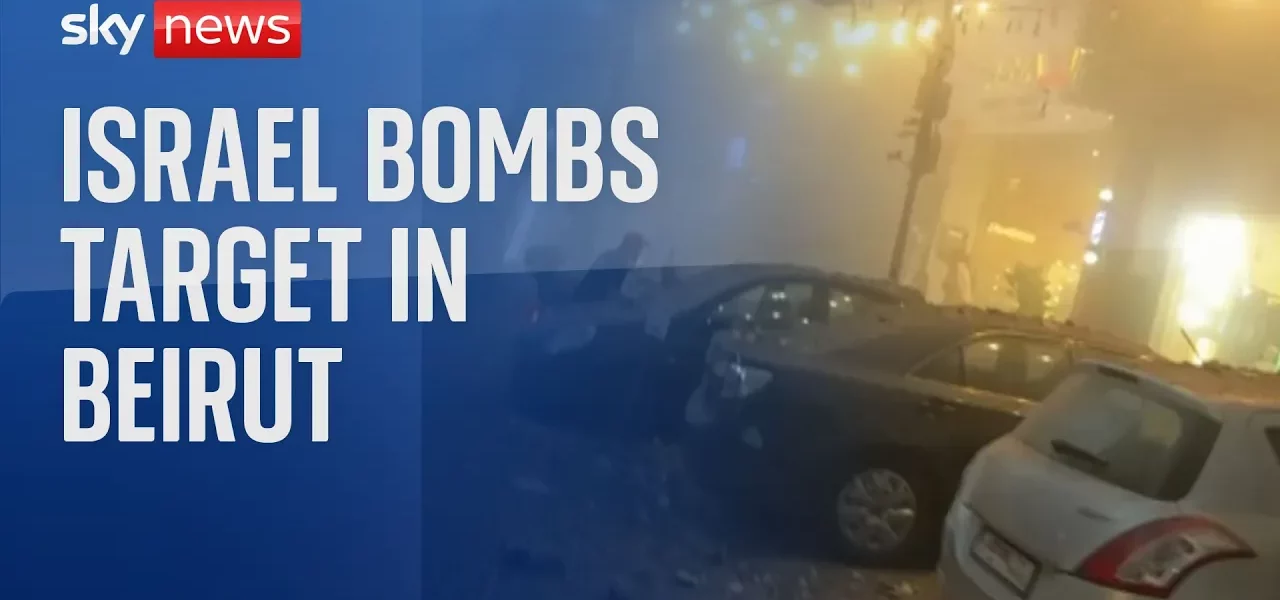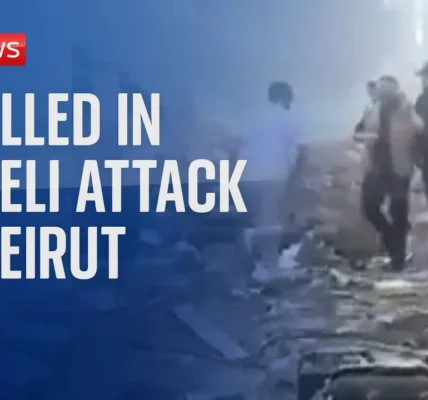Breaking News: Israeli Defense Forces Target Hezbollah Commander in Beirut

This article delves into the recent developments regarding the Israeli Defense Forces’ (IDF) targeted strike in Beirut, Lebanon, aimed at a Hezbollah commander linked to the tragic deaths of Israeli children and civilians. We explore the background, implications, and potential ramifications of this escalating conflict.
Introduction
In a significant escalation of tensions in the Middle East, the Israeli Defense Forces have conducted a targeted strike in Beirut, Lebanon, reportedly targeting a Hezbollah commander. This action comes in the wake of a deadly rocket attack that resulted in the deaths of 12 Israeli children on the Golan Heights, marking one of the most devastating incidents since the onset of hostilities in October. The situation remains fluid, with both Israel and Hezbollah signaling a desire to avoid further escalation, but the potential for broader conflict looms large.
The Targeted Strike: Details and Context
The IDF’s operation in Beirut has drawn international attention, particularly due to its implications for the already volatile situation in the region. The targeted strike was aimed at a commander believed to be responsible for orchestrating attacks against Israeli citizens.
Background of the Conflict
The backdrop to this military action is a complex web of conflicts involving Israel, Hezbollah, and other regional actors. The recent rocket attack on the Golan Heights, which killed 12 children, has intensified the urgency for a response from Israel. This incident represents the highest civilian death toll in Israeli-held territory since the conflict reignited on October 7.
The Significance of Beirut
Beirut, as a densely populated city and a stronghold for Hezbollah, has been the center of many military operations in the past. The choice of this location for a targeted strike highlights the operational challenges and risks associated with military actions in urban environments.
Reactions from Hezbollah and Regional Actors
In the aftermath of the strike, Hezbollah’s response has been notably swift. The group, which has a history of claiming responsibility for military actions, was quick to deny involvement in the recent rocket attack on the Golan Heights, which is a significant deviation from their usual protocol.
Hezbollah’s Denial
The unusual denial raises questions about Hezbollah’s strategic calculations and potential future actions. Experts believe that this response may be an attempt to recalibrate their posture in light of Israel’s aggressive military tactics.
International Warnings and Diplomatic Responses
In the days leading up to the strike, various countries, including the UK and the US, issued warnings to their citizens in Lebanon. The British Foreign Secretary urged UK nationals to leave Lebanon immediately, reflecting growing concerns over the safety of foreign nationals amidst escalating hostilities.
Potential Consequences and Escalation Risks
The current situation presents a precarious balance of power that could tip toward wider conflict. Both Israel and Hezbollah have indicated that they do not desire a full-scale war; however, the dynamics on the ground suggest otherwise.
Strategic Implications for Israel
- Israel’s military strategy may shift in response to Hezbollah’s actions.
- Continued operations in Lebanon could provoke a stronger retaliatory response from Hezbollah.
- The potential for escalation into a regional conflict involving Iran and allied militias is concerning.
Hezbollah’s Position
Hezbollah has made it clear that they will respond in kind to Israeli actions. This tit-for-tat approach could lead to further military engagements, raising the stakes for both sides.
Conclusion
The recent developments in Beirut highlight a critical juncture in the ongoing conflict between Israel and Hezbollah. As both sides navigate this tense landscape, the potential for escalation remains high. It is crucial for the international community to monitor these events closely and encourage diplomatic solutions to avert a broader conflict.
For more in-depth analysis on the Middle East conflicts, visit our related articles on regional security dynamics and the role of international diplomacy in conflict resolution.
“`




